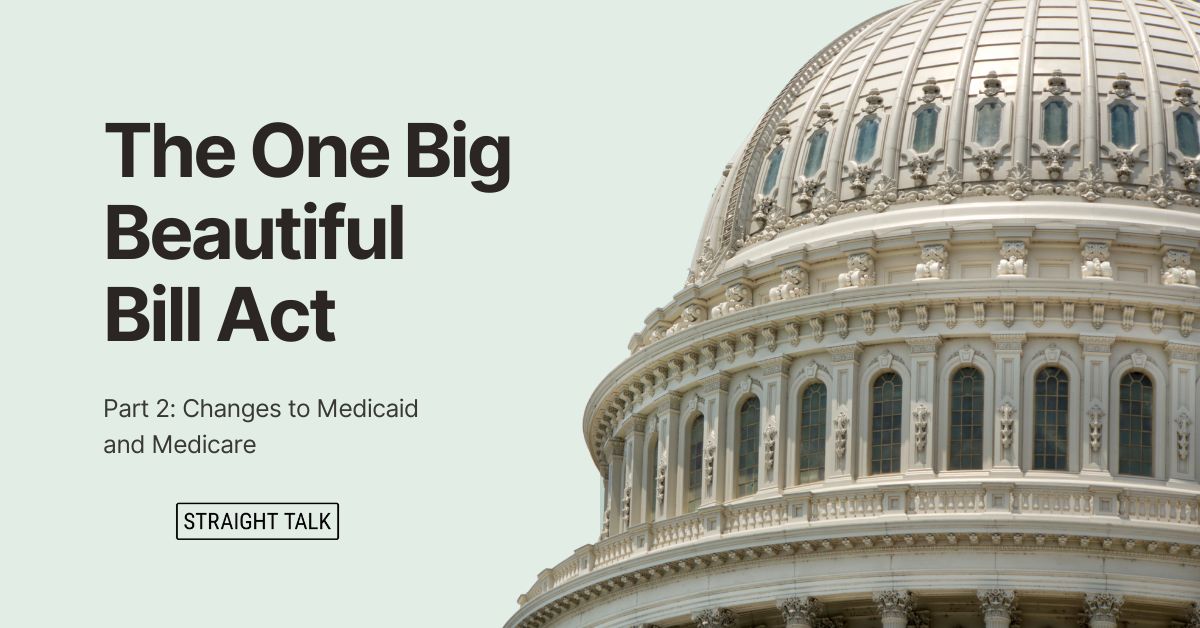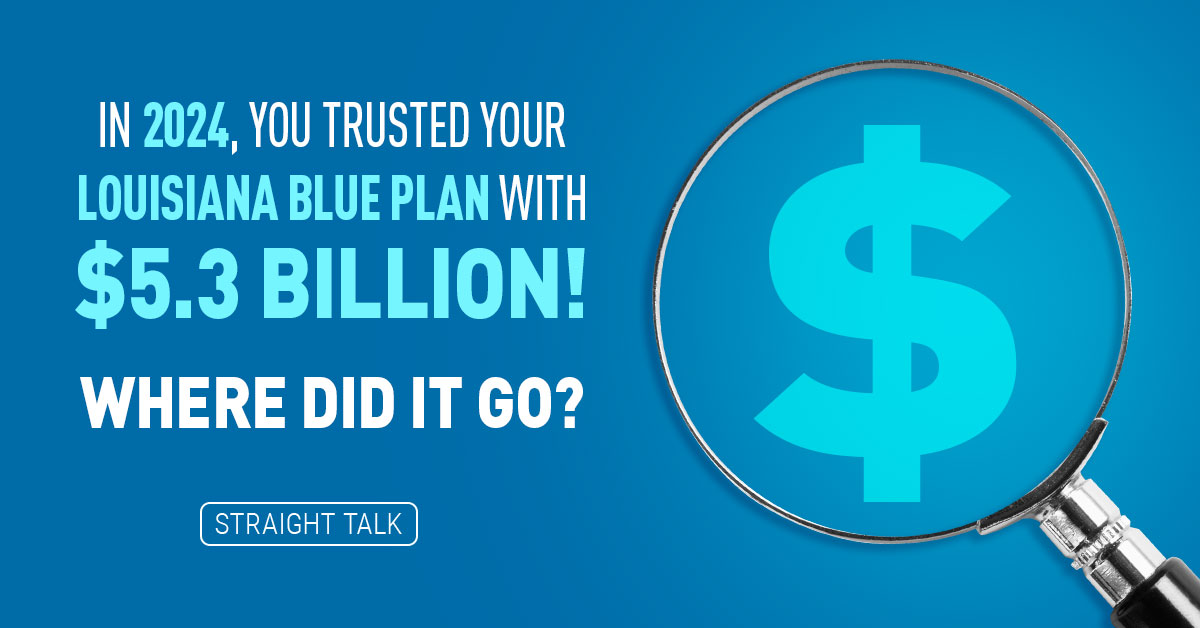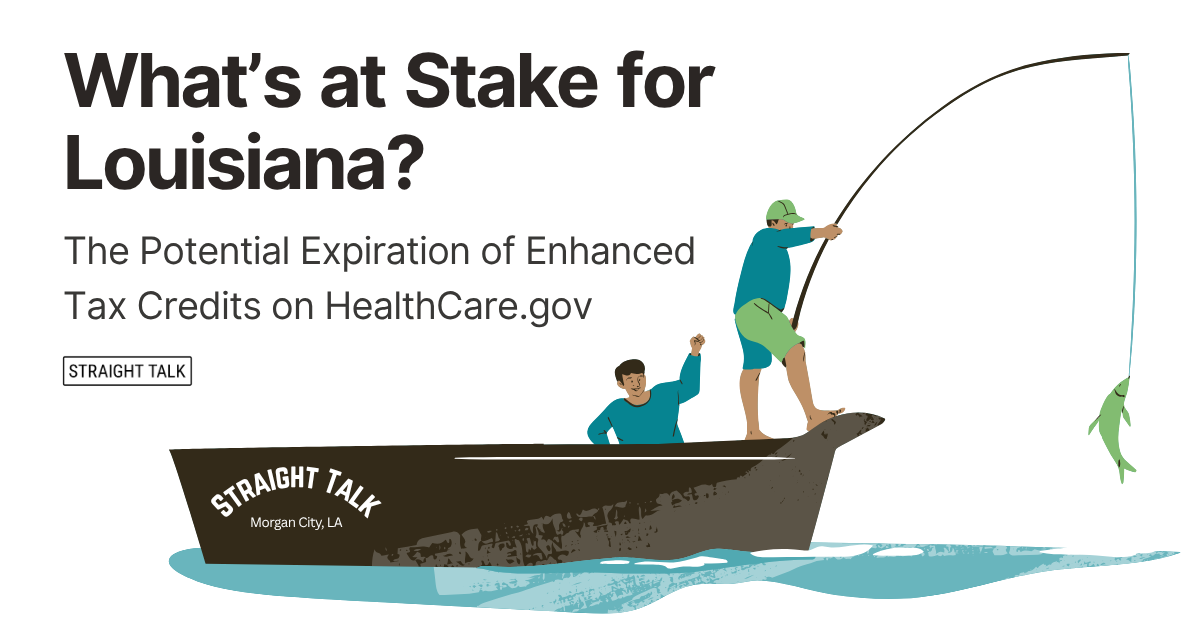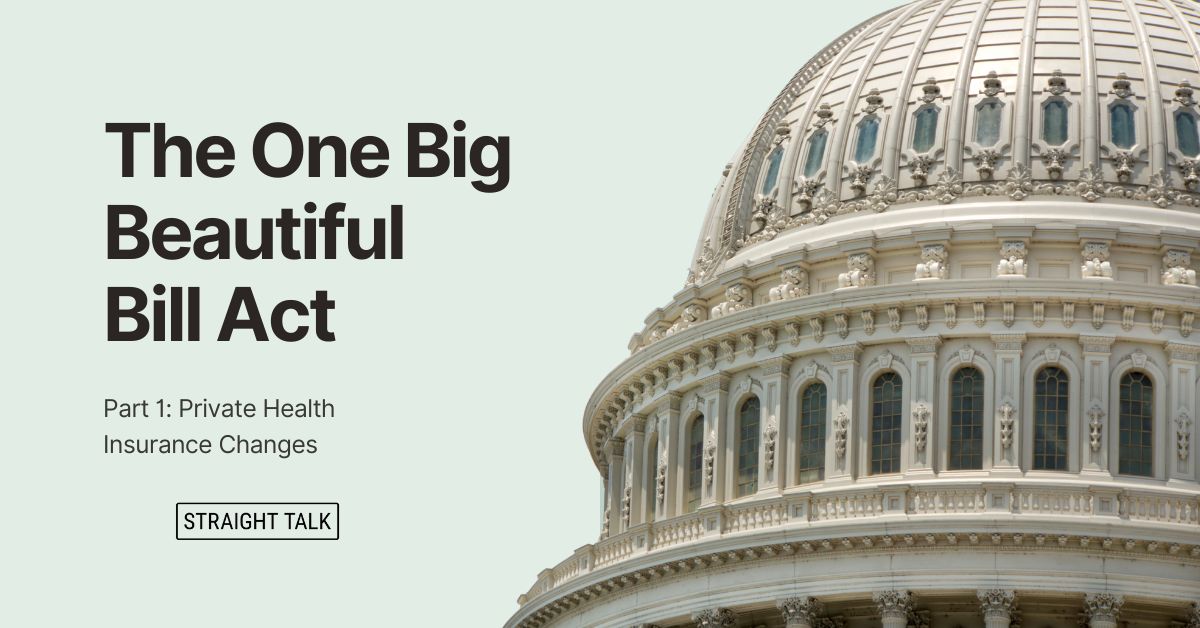In our first installment covering the potential changes coming from the One Big Beautiful Bill Act (OBBBA) that passed in July, I focused on changes to the private insurance markets. This included group insurance products and individual products sold on HealthCare.gov or the state-based marketplaces.
In this installment, I’m going to tackle the parts of the bill that directly address Medicaid and Medicare changes. To be fair, this section has MANY more changes than the parts affecting private insurance did, but these changes are spread over many more years. So I’ll try to focus on the major changes and take them in chronological order to keep things simple.
Remember when you see the Congressional Budget Office’s estimates predicting millions of folks will lose their current health insurance coverage, those effects are spread out over 10 years. Given the nature of the funding changes in the bill, the actual impacts will vary pretty dramatically from state to state and year to year. Wherever possible, I will try to point out how I believe that these changes will affect Louisiana and nearby states.
It is vitally important today to point out something that is near and dear to Louisiana’s population and DID NOT CHANGE in the OBBBA, though it was discussed. Our coverage of able-bodied adults in Medicaid, via former Gov. John Bel Edwards’ eligibility expansion that began in 2016, is entirely dependent on a federal matching formula. This allows Louisiana $9 in federal money for every $1 we spend in state money. That 90% match HAS NOT CHANGED and was not included in the OBBBA, despite some reporting to the contrary. The expanded qualifications for Louisianians to enroll in Medicaid remain in place.
Eligibility Clarifications
A major change in the OBBBA takes effect in October 2026 and centers around a clear definition of which people in the U.S. may be considered “lawfully present” and eligible for coverage in Medicaid (and Medicare). The current variations from state to state will presumably go by the wayside.
By Oct. 1, 2026, only the following people will be able to enroll in Medicaid in any state (no exceptions):
Every applicant must be a resident of the United States AND one of the following:
- United States citizen or national;
- Lawful Permanent Resident (but not visitor, tourist, diplomat or student);
- Cuban or Haitian (defined in the Refugee Education Assistance Act of 1980); or
- Resident from Micronesia, Marshall Islands or Palau
According to the OBBBA, no other categories will be recognized.
Please note, AT THIS TIME it appears within the OBBBA that the above categories will apply to MEDICARE as well, even among older adults who have worked in the U.S. and contributed taxes from their paychecks but don’t meet one of the above categories. We and other insurers that offer Medicare products are expecting more clarification on this point.
Provider Tax Changes
States that use taxes collected from medical providers (like hospitals, intermediate care facilities, nursing homes, MCOs, pharmacies and others) toward Medicaid and draw down federal dollars to support the program will have new limits on the tax rates they can use for this purpose. Currently, states can tax providers up to 6% of total Medicaid spending and then draw down $9 in federal money for every $1 they spend on certain Medicaid populations.
Beginning in 2028, most of these categories will have their rates ratcheted down by one half of a percent per year until the max rate is 3.5% of Medicaid spending, which is expected by 2034. Since some states are using tax rates of 6% (or higher), big changes in Medicaid funding could be coming.
The OBBBA creates a $50 billion fund over five years that rural hospitals can draw from to replace some of this lost tax revenue. Most rural hospitals rely on Medicaid funding because they don’t typically attract the mix of Medicaid patients and patients with private insurance that other hospitals do. These hospitals are a vital safety net in states with lots of rural residents who don’t have many other options to get care (Louisiana is one of the main ones). The dedicated funding will make sure these hospitals can keep serving the communities where they operate if/as other provider tax spending decreases.
Much has been made of two Medicaid changes that start in 2027-2028: Community engagement requirements and required copays.
Community Engagement
Commonly called “work requirements,” the OBBBA specifies that a particular slice of Medicaid recipients will be required to engage in work, job training, education or community service, or search for work up to 20 hours per week to continue to receive their Medicaid benefits. This applies only to able-bodied adults on Medicaid with incomes between 100 and 138% of the Federal Poverty Level and does NOT apply to:
- People who are unable to work because of physical or mental health conditions
- Anyone under 20 years old or over age 64
- Any pregnant people
- American Indians or Alaskan native people
- Anyone caring for children under 14 years old
It appears these requirements will apply to Louisianians enrolled in Medicaid, given our expanded eligibility. Note that at least 10 states will have no people in “Community Engagement” because they have not expanded their Medicaid programs to able-bodied adults with incomes between 100 and 138% of the Federal Poverty Level. States like Texas, Florida, or Georgia, for example. In states that have not expanded, their Medicaid programs are only open to people who fall into the five categories I listed above.
States must have this Medicaid requirement up and running (including reporting compliance on it to federal agencies) by Jan. 1, 2027.
Required Copayments and Cost Sharing
Beginning in 2028, states (like Louisiana) that embraced the ACA Medicaid expansion will be required to charge those folks cost-sharing for the use of certain Medicaid services and prescriptions. These copayments may go up to $35 per covered service and cannot exceed 5% of a person’s household income annually. Many services Medicaid provides are EXEMPT from these payments, including:
- Primary care visits
- Mental health and substance abuse treatments
- Emergency room visits
- Long-term care or custodial care services
- Contraceptive/pregnancy coverage
- All services provided by federally qualified health centers, rural health clinics or certified community behavioral health clinics
- Prescription drugs may only be dispensed to this population after collecting a “nominal fee,” which is not defined in the OBBBA
As the act is written, it appears that any state can collect these payments if they wish, but only the expansion states will be required to do so beginning in 2028.
Lots of clarification is expected from several federal agencies before states begin implementing any of these changes. Stay tuned!
The Straight Talk is, the OBBBA is a massive bill that creates a lot of new tasks for many federal agencies as well as state government agencies to complete over the next five to 10 years. Changes are inevitable, but this is what we know so far. As always, keep reading Straight Talk for the latest scoop. As more information becomes available, I’ll be here to tell you about it.





Thank you for your usual succinct explanation! I was thinking about reading the bill (not really), but then decided I’d wait for Mike’s summary. You are a treasure.